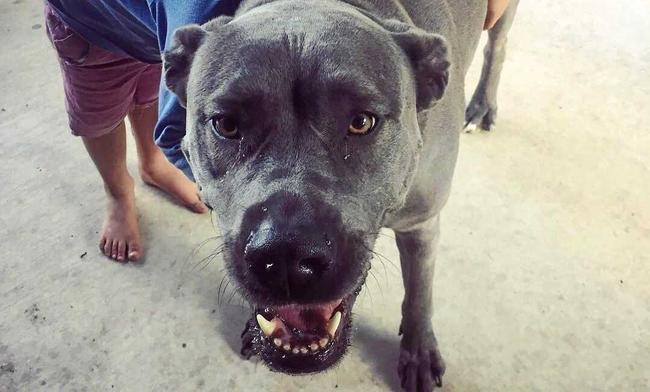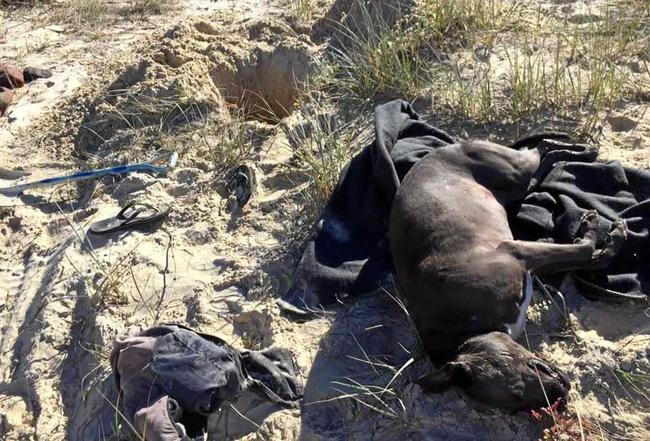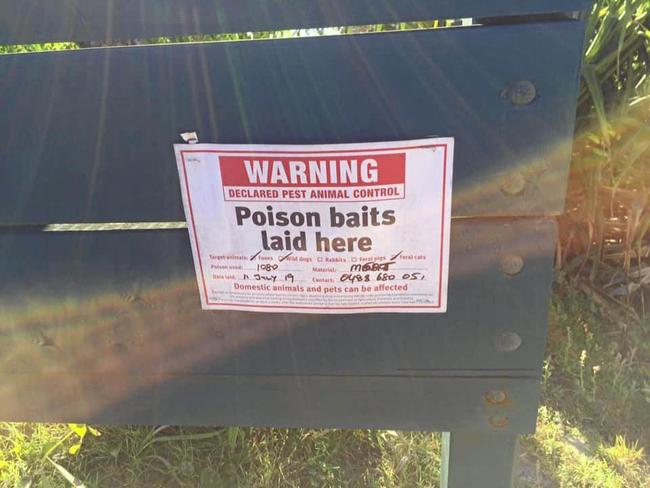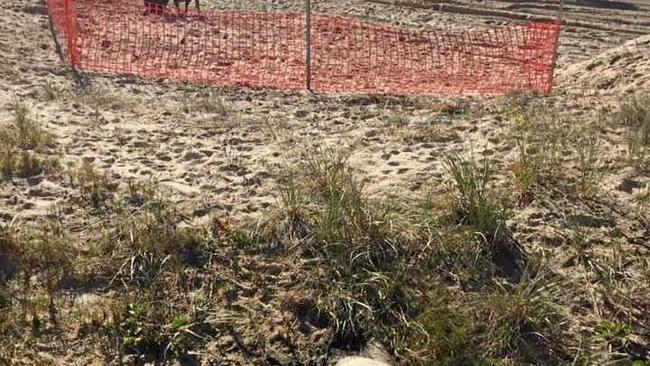Pest bait at dog-friendly beach blamed for 'horrific' death
A Coast family say they wouldn't have visited a popular dog-friendly beach had they known it would end in the 'horrific' death of their bull mastiff.

Coffs Harbour
Don't miss out on the headlines from Coffs Harbour. Followed categories will be added to My News.
A COAST family say they wouldn't have visited a popular dog-friendly beach had they known it would end in the "horrific" death of their bull mastiff.
During a family trip to Teewah Beach on Saturday, Adele Knight's bull mastiff Stella is believed to have eaten wild pest bait.
By the evening Stella was bleeding from her orifices and yelping in confusion.
She died when a vet was unable to successfully resuscitate her for a second time.
"The state that Stella was in was horrific for our family members to witness. It was devastating," Ms Knight said.
"And now our other dog Phoenix is left wondering where Stella is too."

Ms Knight said the family had pulled up at a popular spot on the beach at the high tide mark.
Her son sat with Stella, on a leash, about a metre from their set-up when it's believed she ate the bait.
"They had walked over to the mesh fence grounded with a stake, which we'd assumed were there to stop people from driving up near the dunes," Ms Knight said.
"We weren't aware she'd actually eaten anything because she's always chewing on sticks.
"And we weren't aware of any baiting in the area but the vet said Stella had shown signs of bait poisoning."
The following day Ms Knight and her partner Blair Gealy returned to Teewah Beach, this time on the lookout for clues.

They found an inconspicuous A4 warning taped to the large entrance sign of the beach, and a blue rope where Stella was sat matched those used for baiting.
The sign stated 1080 bait had been laid on July 11 to target foxes, wild dogs and feral cats.
Ms Knight was told by a contractor that the bait was placed near the rotting carcases of two loggerhead turtles to attract pests.

A petition was then launched by Ms Knight, who believes the bait shouldn't have been placed where it was.
"If there was a sign at that spot there is no way we would have gone there with our dogs," Ms Knight said.
"Bait should be far away from where this one was placed.
"I can't believe this poison is being used on our beaches when it kills everything."
The petition, to change regulations around baiting, has already attracted 200 signatures.
Noosa Council is authorised to conduct a range of trapping and targeted poison baiting programs.
Environmental Services Manager Craig Doolan said Council's thoughts were with the dog's owner following the suspected 1080 poisoning incident.
"We have referred this incident to Queensland Health as the agency responsible for investigating in the rare event that an incident of off-target 1080 poisoning is suspected," he said.
Mr Doolan urged all dog owners to observe signage at Noosa North Shore beach access points about the presence of baits.
"Council, in partnership with Queensland Parks and Wildlife Service, has conducted the fox and wild dog eradication program annually without incident for several years," he said.
"To reduce the risk to domestic dogs, officers bury the baits in the dunes behind the beach, well beyond the tide, where dogs aren't allowed."
The eradication program, which typically runs for four weeks, aims to protect nesting turtles and kangaroos from being killed by wild dogs and foxes, which prey on these and many other native animals.
"The program is targeted and has a good track record of eradicating only wild dogs and foxes, with officers following strict protocols around the use of baits," Mr Doolan said.
"All buried baits are tied to stakes to reduce the risk of native species taking them.
"They are checked every 3-4 days either by Council officers or QPWS rangers."
Council said warning signs were placed in the dunes every kilometre or so.
It urged dog owners to take steps to keep their pets away from baits.
"Often it may be as simple as keeping your dog on a lead outside of designated off-leash areas," Mr Doolan said.
Originally published as Pest bait at dog-friendly beach blamed for 'horrific' death



